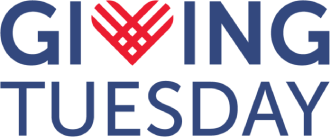It’s up to us—we can ensure that the legacy of this year will be a renewed recognition of our powerful ability to create meaningful change and strengthen our bonds of human connection.
By Asha Curran, CEO, GivingTuesday and Edgar Villanueva, Founder and Author, Decolonizing Wealth
This article was first published in Worth Magazine in March 2020.
At the end of a year marked by compounding crises, cries for justice and palpable feelings of fear, isolation and helplessness, we have an opportunity to drive systemic change.
While many call on philanthropists, policymakers and grantmakers to repair broken systems, let’s recognize that we each can drive an enormous amount of positive change by rooting our everyday actions, decisions and behavior in radical generosity—the concept that the suffering of others should be as intolerable to us as our own suffering.
We’ve shown we have the capacity as ordinary citizens to make a massive impact. On December 1, tens of millions of people around the world gave their time, voice, talent and dollars in celebration of this generosity on Giving Tuesday. People of all races, faiths and political views rallied to give back to causes, communities and organizations to the tune of $2.47 billion dollars in one day, just in the United States.
As we reflect on this incredible power of generosity, we must reimagine the ways we use our resources—including wealth, time, talents and platforms—in pursuit of equity, community and shared humanity. Our continued giving must prioritize grassroots movements, particularly those led by people of color who have always been the real forces behind social progress.
Black, Latinx and Indigenous people have endured devastating losses from COVID-19 itself, the economic crisis fueled by a lack of federal response to the virus and elevated state violence. Our path forward must prioritize racial healing and address the root causes of inequality.
The reality of our unjust systems—from colonialism to systemic racism to misogyny, homophobia, transphobia and more—is that they will not be fixed in a silo of government institutions or by billionaires moving money through initiatives that are frequently not in touch with the communities they’re trying to help.
The most pressing issues faced by our society are solved by local organizations rooted in the community, led by those most affected, demanding accountability from institutions and elected officials and pushing for bold policy change. But these organizations doing the hard work of fighting injustice and organizing for change, especially those led by BIPOC folks, are often overlooked in charitable giving and are still struggling for resources.
Even with the best of intentions when donating money, many people fail to understand the ways that wealth in this country has been accumulated on the backs of people of color, and as a result, fail to give in a way that truly reduces racial wealth gaps. It’s time we take a hard look at where and how we give, and consider how we can reach out with what we have and redistribute money as closely to the source of the pain as possible.
For many, it’s difficult to imagine any resultant good that can come from this year of division, inequity, violence and suffering. But from the ashes of our collective pain and exhaustion, a new type of solidarity arose. We have seen extraordinary grassroots efforts succeed to help frontline workers, protect those disproportionately affected by the pandemic and economic crisis, coalesce support and activism for racial injustice and systemic inequity, mobilize civic participation, and uphold democracy—all while continuing to drive giving and action for causes and communities worldwide.
We’ve witnessed a multiracial unity and solidarity with movements for Black lives, with mutual aid networks being built in cities across the country, people opening their doors to tear-gassed protesters and millions on the streets demanding justice night after night.
These actions are being brought forth by families, networks, neighborhoods and communities who know best how to address the problems they face every day. Indigenous communities have been giving in the form of reciprocity and mutual aid for hundreds of years, and to truly fight injustice, we all must approach giving with the mindset of putting money directly into peoples’ hands.
Below our messy, dysfunctional national surface, there is a deep knowledge that we have to take care of each other, that we can’t rely on philanthropy, charity, the federal government or the police. When push comes to shove, all we truly have is each other. It just took a national crisis for many of us to see it. Generosity’s most powerful manifestation is as solidarity.
We need to look critically at the past to acknowledge wounds still felt by countless BIPOC individuals in this country and work together to heal them. For the people who have lived with the gaping, centuries-old wounds of white supremacy and colonialism for so long, we need a chance to heal. And those who have never felt that pain, who have benefited from inflicting that pain, need to ask—how can I be part of this collective healing? What will I have to give up so that we all can heal?
We can both reach out to those at risk of falling through the cracks and ask ourselves why anyone is so perilously close to the cracks at all. Let’s strive to reimagine a world where generosity is at the heart of all we do and where our wealth is used to consistently and steadfastly build something better, together.
This year we’ve shown our will in stepping up as generous neighbors and compassionate communities when faced with a crisis. Let’s carry this swell of giving forward with a better understanding of the impact of our generosity and how it can be used to heal, serve and build something better, not simply continue to act as a Band-Aid for broken systems.
It’s up to us—we can ensure that the legacy of this year will be a renewed recognition of our powerful ability to create meaningful change and strengthen our bonds of human connection.



